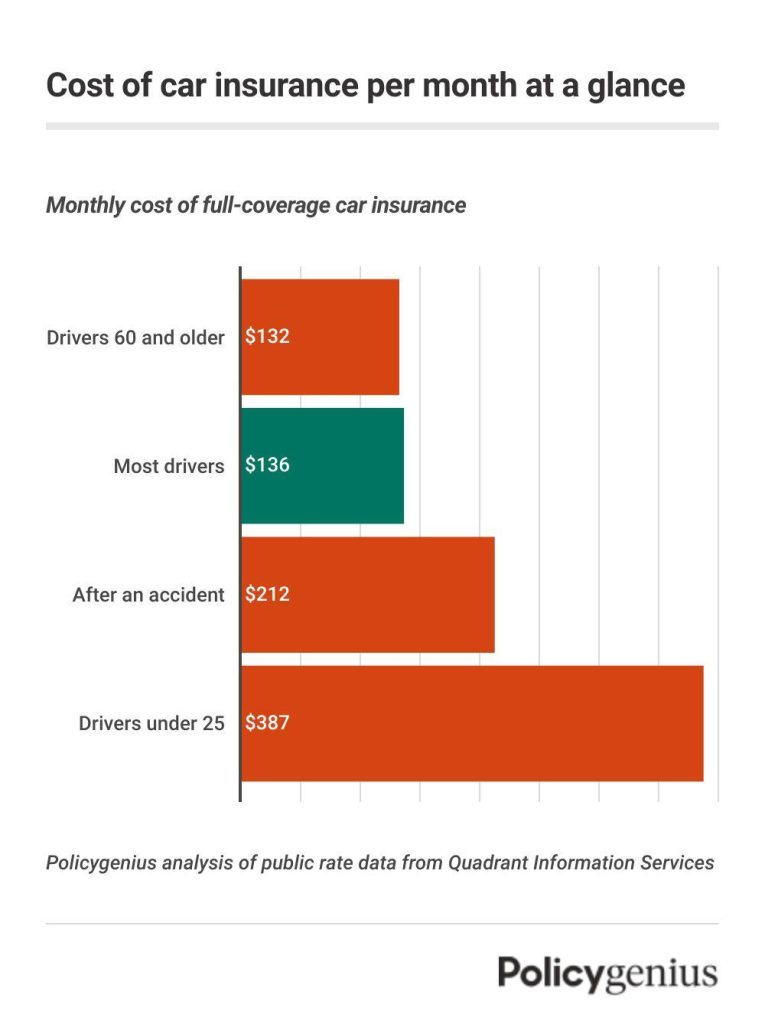When it comes to auto insurance, understanding what drives your premium rates can make a significant difference in managing your expenses and ensuring you get the best value for your coverage. Whether you’re a new driver shopping for your first policy or a seasoned motorist looking to save, knowing the top factors that influence your auto insurance premiums is essential. In this article, we’ll break down the key elements insurers consider when calculating your rates, helping you make informed decisions and potentially lower your costs without compromising on protection. Dive in to discover what really impacts your auto insurance premiums and how you can take control.
Table of Contents
- Understanding Your Driving History and Its Impact on Premiums
- How Vehicle Choice Can Affect Your Insurance Costs
- The Role of Location in Determining Auto Insurance Rates
- Practical Tips to Lower Your Auto Insurance Premiums Effectively
- The Way Forward
Understanding Your Driving History and Its Impact on Premiums
Your driving record plays a crucial role in determining your auto insurance premiums. Insurers closely examine your history to assess the risk you represent on the road. Accidents, traffic violations, and claims in your past can signal to insurers that you are more likely to file future claims, leading to increased premium rates. On the other hand, a clean driving record often results in lower premiums and eligibility for discounts that reward safe driving habits.
Several specific factors within your driving history commonly affect your rates, including:
- Number and severity of traffic tickets
- Frequency and type of at-fault accidents
- Claims history beyond regular wear and tear
- Length of time without incidents or violations
Maintaining a spotless or improved record over time can demonstrate responsible driving, ultimately making your insurance more affordable and offering you greater financial protection.
How Vehicle Choice Can Affect Your Insurance Costs
The type of vehicle you drive plays a crucial role in determining your insurance premiums. Insurance providers assess a range of factors related to your car, including its make, model, and age. High-performance sports cars or luxury vehicles typically attract higher premiums due to the increased risk of theft and the cost of repairs. Conversely, vehicles with high safety ratings or advanced security features often benefit from discounted rates. Additionally, cars that are cheaper to repair tend to cost less to insure, which is why popular, mass-market models usually come with more affordable insurance rates.
Beyond the vehicle’s inherent characteristics, insurance companies also consider:
- Repair costs: Expensive parts and complex engineering translate to higher premiums.
- Theft risk: Vehicles frequently targeted by thieves face higher insurance costs.
- Safety features: Cars with airbags, anti-theft devices, and collision avoidance systems can qualify for discounts.
- Vehicle usage: How often and for what purpose the car is driven affects the risk profile.
Choosing a vehicle with insurance considerations in mind can significantly reduce your annual premium, helping you save money without compromising on your needs.
The Role of Location in Determining Auto Insurance Rates
Where you choose to park your car overnight and the neighborhood you drive in daily play a significant role in shaping your auto insurance premium. Urban areas, for example, tend to experience higher rates of traffic congestion, vehicle theft, and accident frequency compared to rural locations. Insurance providers analyze local crime statistics, traffic density, and even weather patterns to assess the risk levels associated with your address. Living in a region with a higher incidence of claims directly translates to increased premiums, as insurers anticipate greater chances of payout.
It’s also important to note that insurers take into account various sub-factors related to location, such as:
- Proximity to fire stations: Areas closer to emergency services often enjoy lower rates.
- Road conditions and infrastructure: Well-maintained roads reduce accident risks.
- Local traffic laws and enforcement: Stricter regulations can lead to safer driving environments, influencing rates.
Understanding how your location impacts your auto insurance empowers you to make informed decisions — whether considering a move or seeking coverage options tailored to your area’s risk profile.
Practical Tips to Lower Your Auto Insurance Premiums Effectively
Reducing your auto insurance premiums doesn’t have to be a complicated process. Start by reviewing your coverage limits and eliminating unnecessary add-ons that don’t align with your driving habits. Consider increasing your deductible, which can substantially lower your monthly costs if you’re confident in your driving record. Also, bundling your auto insurance with other policies, like homeowners or renters insurance, can lead to significant discounts through many insurers.
Another effective strategy is to maintain a clean driving record by avoiding tickets and accidents, as insurers heavily weigh your driving history when setting premiums. Additionally, consider installing safety devices such as anti-theft alarms, GPS tracking, or dashcams, which can positively influence your rates. Don’t forget to shop around and compare quotes periodically to ensure you’re getting the best deal available for your profile and needs.
- Increase your deductible to lower premium costs.
- Bundle multiple insurance policies for discounts.
- Keep a clean driving record to demonstrate reliability.
- Install safety features to qualify for additional savings.
- Compare insurers regularly to spot better deals.
The Way Forward
Understanding the key factors that influence your auto insurance premium rates can empower you to make more informed decisions when shopping for coverage. From your driving history and vehicle type to location and credit score, each element plays a crucial role in determining your costs. By being aware of these variables, you can take proactive steps—such as maintaining a clean driving record, choosing the right car, or adjusting coverage levels—to help manage and potentially lower your premiums. Staying educated and periodically reviewing your policy ensures you get the best value for your protection on the road. Remember, knowledge is your most valuable asset in navigating the complexities of auto insurance.





